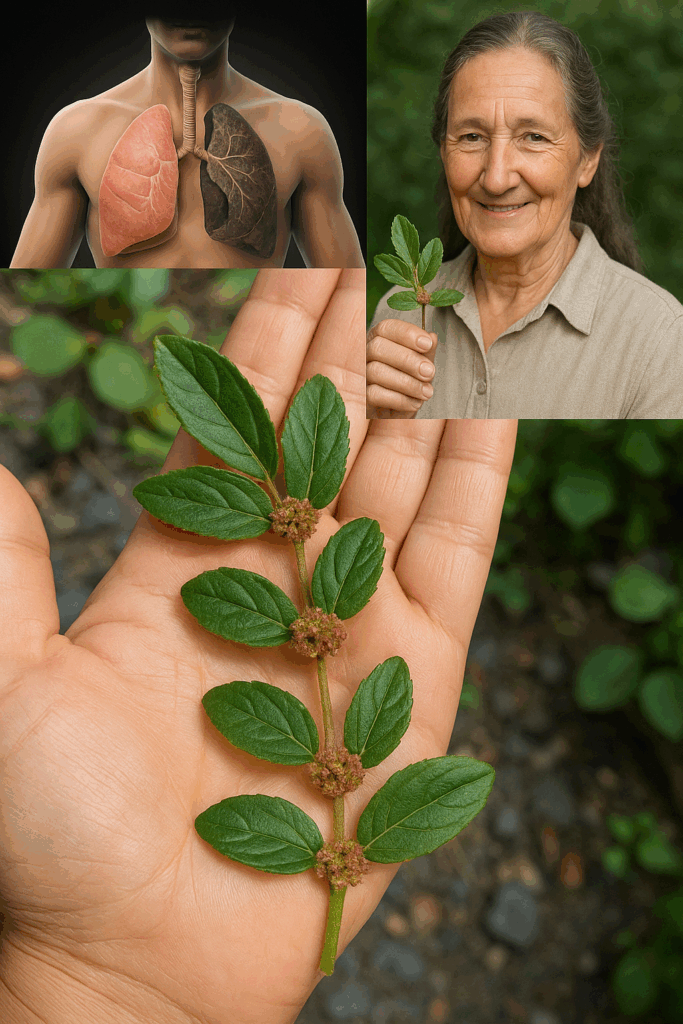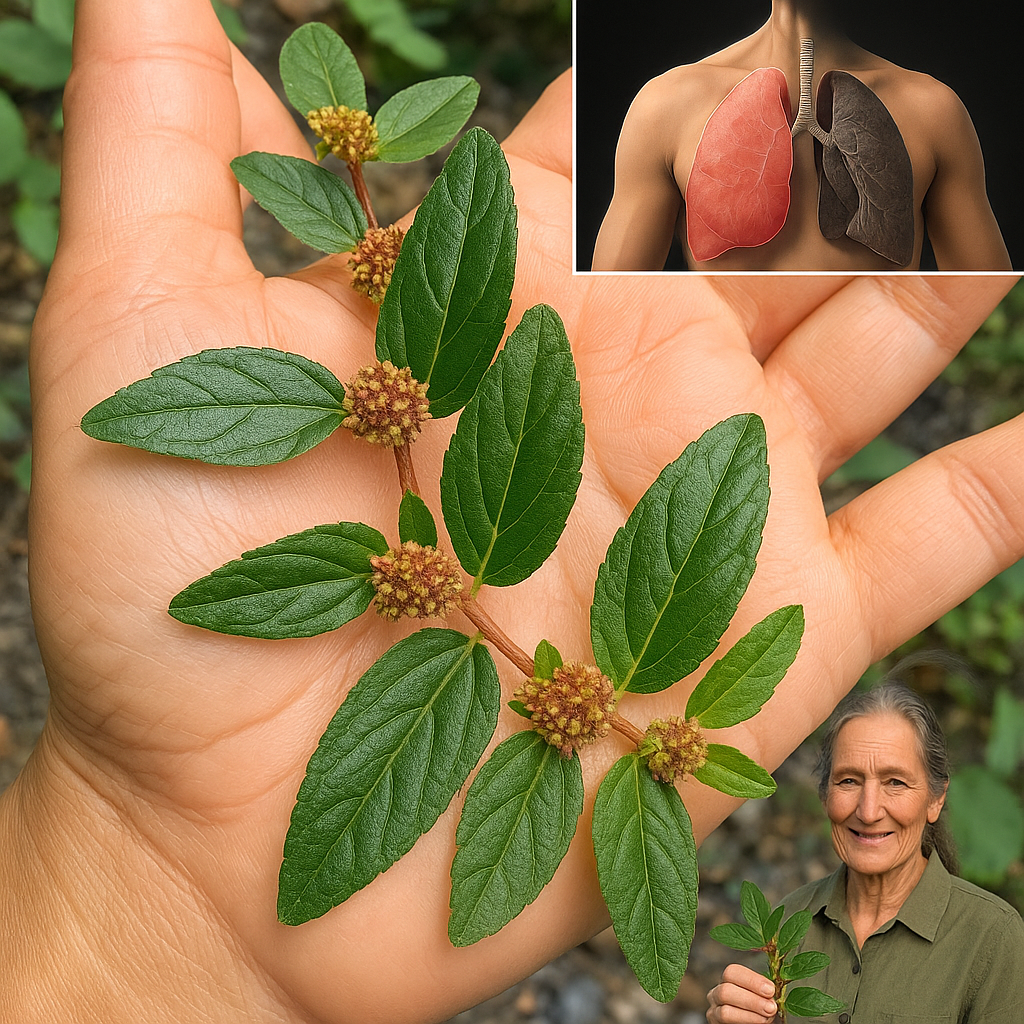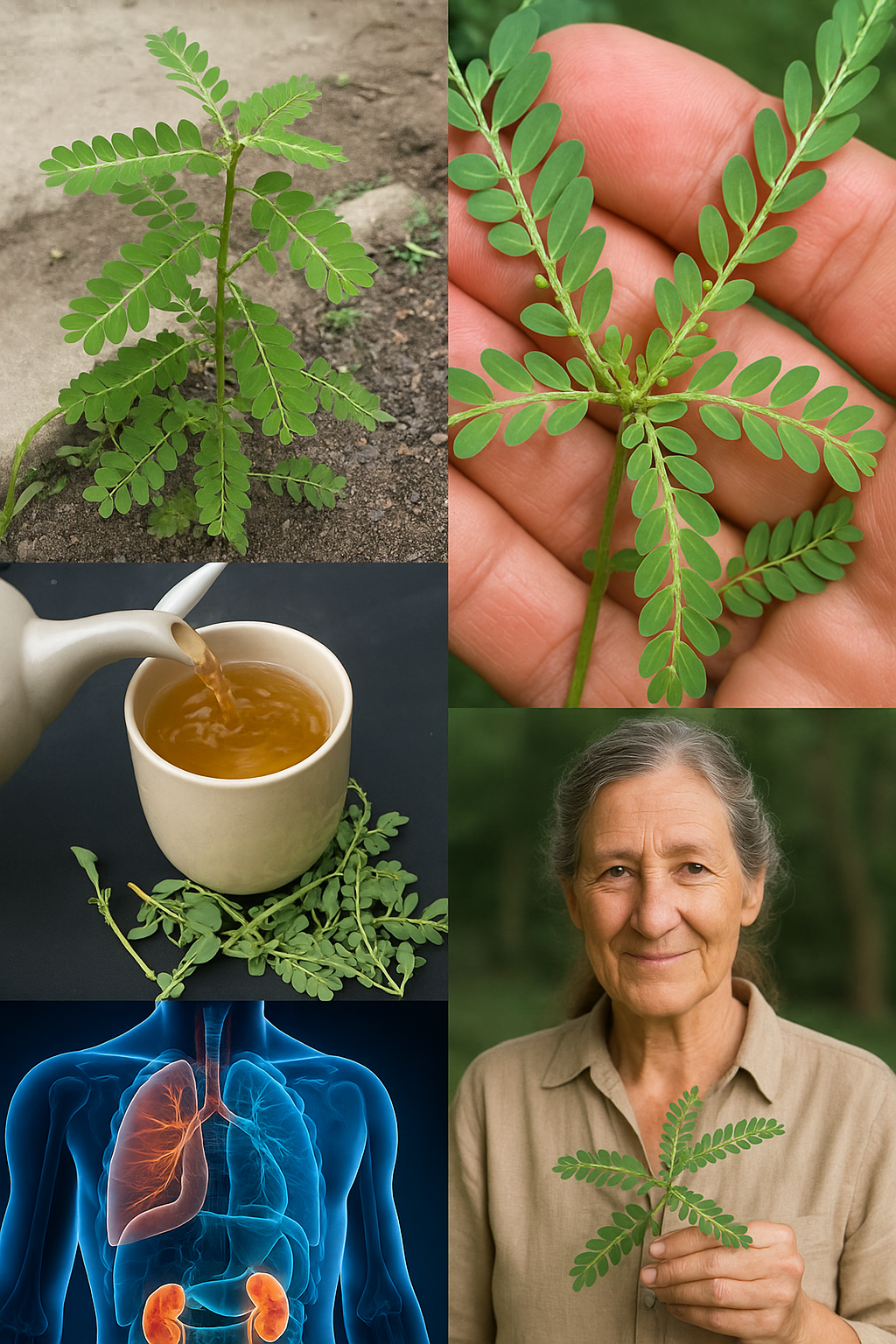Known as the “asthma plant,” Euphorbia hirta is a humble herb with a wide-reaching history of medicinal use across Asia, Africa, and Latin America. Despite its modest appearance, this herbaceous plant is deeply rooted in traditional medicine—valued for its ability to support respiratory health, treat digestive issues, calm the skin, and offer antimicrobial defense.
This article explores the most common uses of Euphorbia hirta, its traditional preparation methods, and key precautions to consider when incorporating it into your health routine.

🌬️ 1. Respiratory Relief: A Natural Bronchodilator
One of the most widely recognized applications of Euphorbia hirta is for respiratory ailments:
- Asthma support: Its bronchodilatory properties help relax airway muscles, making it easier to breathe.
- Chronic cough and bronchitis: Traditionally consumed as a tea to reduce coughing, clear mucus, and soothe the lungs.
- How to use: Boil fresh or dried leaves in water, strain, and sip warm for respiratory relief.
In folk medicine, it’s often called “asthma weed” for good reason.
💧 2. Gastrointestinal Health: Calming the Gut
Used for generations to address digestive discomfort:
- Anti-diarrheal: A decoction of the leaves is commonly used to treat diarrhea, dysentery, and even parasitic infections.
- Anti-spasmodic: It helps reduce gut spasms and cramping, potentially helpful for IBS (Irritable Bowel Syndrome).
- Anti-inflammatory: Soothes irritation of the digestive lining.
Drink as a tea or decoction after meals to ease symptoms.
🌿 3. Dermatological Applications: Healing from the Outside In
When applied externally, Euphorbia hirta offers notable skin benefits:
- Treats boils, rashes, and warts
- Soothes wounds and ulcers
- Antimicrobial effect helps prevent infection on the skin
Preparation: Crush the fresh leaves into a poultice or paste, apply directly to affected areas, and leave on for 10–15 minutes before rinsing.
🦠 4. Antimicrobial and Antifungal Action
Laboratory studies have shown broad-spectrum antimicrobial activity, including:
- Bacterial infections (e.g., E. coli, Staphylococcus)
- Fungal infections (e.g., athlete’s foot, yeast)
- Potential antiviral properties under early-stage research
Can be consumed as tea or used as a topical wash for skin infections.
🔥 5. Natural Pain Relief and Anti-Inflammatory Support
Euphorbia hirta is used in folk remedies to manage pain and inflammation, including:
- Headaches and migraines
- Joint pain and arthritis
- Muscle strains and body aches
Its analgesic and anti-inflammatory properties help relieve discomfort when taken as tea or used externally as a compress.
🌡️ 6. Fever-Reducing (Antipyretic) Properties
In traditional systems, a warm Euphorbia hirta tea is used to:
- Reduce fever
- Cool the body naturally
- Alleviate flu-like symptoms
Often consumed during tropical fevers like dengue or malaria (note: not a substitute for medical treatment).
💦 7. Support for Urinary Tract and Bladder Health
Folk medicine also employs Euphorbia hirta for urinary conditions:
- UTIs and bladder inflammation
- Water retention
- Promoting urine flow (diuretic action)
A mild tea or decoction can help flush the urinary tract, though scientific evidence is limited.
🛡️ 8. Antioxidant Activity: Cellular Protection
Euphorbia hirta contains natural antioxidants that fight oxidative stress:
- Flavonoids, tannins, and phenols help protect cells from damage
- Potential role in preventing chronic diseases linked to inflammation and free radicals
Regular but moderate use may help support long-term wellness.

🫖 How to Prepare Euphorbia Hirta
✳️ Tea / Decoction
- Ingredients: 1–2 tsp of dried leaves or a handful of fresh leaves
- Boil in 2–3 cups of water for 10–15 minutes
- Strain and drink up to 2x per day
✳️ Topical Paste
- Mash fresh leaves with a mortar or crush by hand
- Apply directly to affected skin
- Wrap in a clean cloth for 15–20 minutes
You can also combine the leaves with coconut oil or aloe gel for extra skin nourishment.
⚠️ Safety & Precautions
While Euphorbia hirta is generally well-tolerated in small, traditional doses, it should be used cautiously:
- Do not consume in large quantities – potential toxicity from high doses
- Pregnant or breastfeeding women should avoid unless supervised by a health professional
- May interact with medications such as diuretics, blood pressure meds, or NSAIDs
- Discontinue use if you experience nausea, vomiting, or skin irritation
Always consult your doctor or an experienced herbalist before using this plant medicinally.
🌿 Final Thoughts: A Versatile Healer from Nature
Euphorbia hirta stands as a powerful, time-honored herb for supporting respiratory health, digestion, skin healing, and pain relief. While scientific studies are still catching up with its traditional uses, the anecdotal evidence and centuries of use make it a plant worth learning about.
Used wisely and with respect, the asthma plant can be a gentle yet effective ally in natural healing.
Explore it. Respect it. Use it with care.


